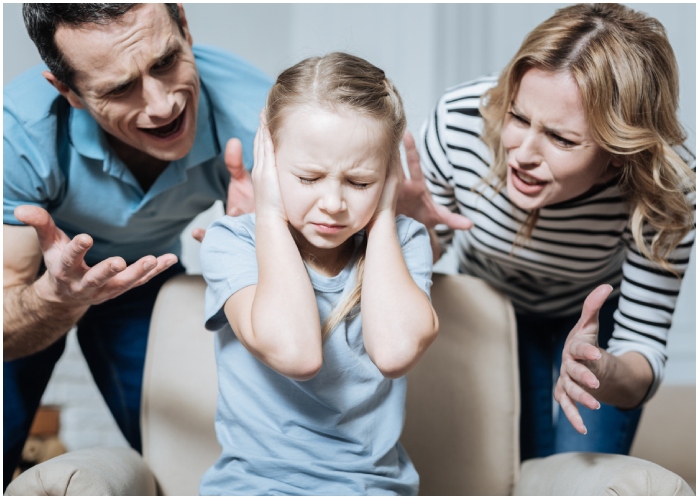Yelling is a common response for many parents in moments of frustration or anger. However, experts agree that this method does not effectively encourage the behavior we hope to see in our children. Understanding the impacts of yelling and exploring alternative strategies can greatly improve how we interact with our kids, especially during challenging moments.
1. Kids Can’t Learn in “Fight-or-Flight Mode”
When children are yelled at, their immediate reaction is often fear, which triggers a fight-or-flight response. According to experts this physiological state shuts down the learning centers of the brain. In this mode, children are unable to absorb lessons or reflect on their behavior because they perceive the yelling as a threat. Conversely, calm and peaceful communication fosters a safe environment where children are much more receptive to learning and understanding.
2. Yelling Can Make Children Feel Devalued
Feeling valued is crucial for everyone’s self-worth, especially for children who are still developing their sense of self. Dr. Joseph Shrand, an instructor of psychiatry at Harvard Medical School, notes that yelling can quickly make children feel worthless and question their capabilities. This can damage their self-esteem, making them see themselves in a negative light, which is counterproductive to fostering a positive and supportive relationship.

3. Yelling Can Fuel Anxiety, Depression, and Lower Self-Esteem
Research shows that children who are frequently yelled at may experience higher levels of anxiety and depression. These emotional states are exacerbated by the negative atmosphere created by yelling. Dr. Neil Bernstein, a clinical psychologist, explains that being subjected to such intense negativity can have long-lasting effects on a child’s emotional well-being, contributing to an increase in mental health issues.
4. Yelling Interferes with Bonding
Yelling disrupts the emotional connection between a parent and child, often leading to feelings of defensiveness and defiance rather than cooperation. Dr. Markham stresses that a secure bond is crucial for effective parenting, and yelling only serves to put your “relationship bank account in the red,” making it difficult to build empathy and understanding.
5. Long-Term Yelling Has Negative Impacts on Children
Extensive studies have illustrated the harmful effects of prolonged exposure to yelling. Such environments are linked to poor academic performance, behavioral issues, and even changes in brain development. While occasional outbursts may not cause lasting damage, persistent yelling creates a hostile environment that can lead to significant psychological and emotional challenges for children.

6. Yelling is Not Effective Communication
Effective communication is key to helping children learn to regulate their emotions and respond appropriately to various situations. Dr. Shrand points out that yelling often teaches children to react in kind, promoting a cycle of anger and poor communication. Instead, demonstrating calmness and control helps teach children to handle their emotions constructively.
What to Do Instead of Yelling
Recognizing and addressing the reasons behind your anger is crucial. Seeking professional help for underlying health issues or emotional triggers can be an important first step. In moments of anger, try these strategies:
Take deep breaths or count backwards to calm down.
Engage in physical activity like running in place to release tension.
Use positive visualization or place your hands under running water to shift your focus.
Approach the situation with a proposal for a “do-over” to handle the issue constructively.
Building a strong relationship with your child outside of conflict times also makes it easier to communicate effectively when issues do arise. Focusing on understanding and appreciating your child’s unique qualities can make parenting a more rewarding experience for both of you.
In conclusion, while yelling may seem like an immediate outlet for frustration, it does not foster the kind of learning, respect, or emotional health that children need to thrive. Adopting more constructive approaches can significantly improve the dynamics within the family, leading to happier, more cooperative, and loving interactions.